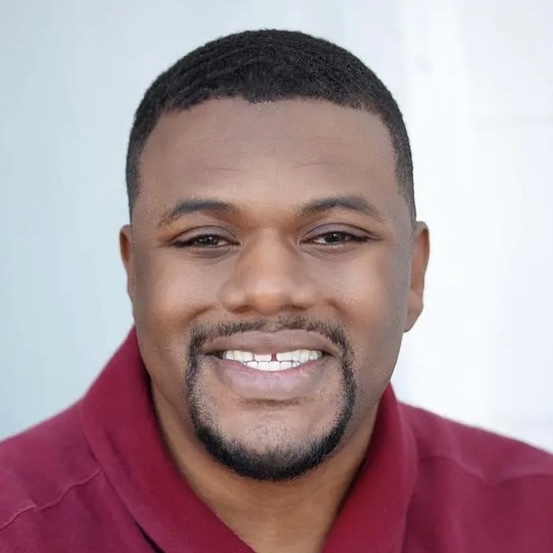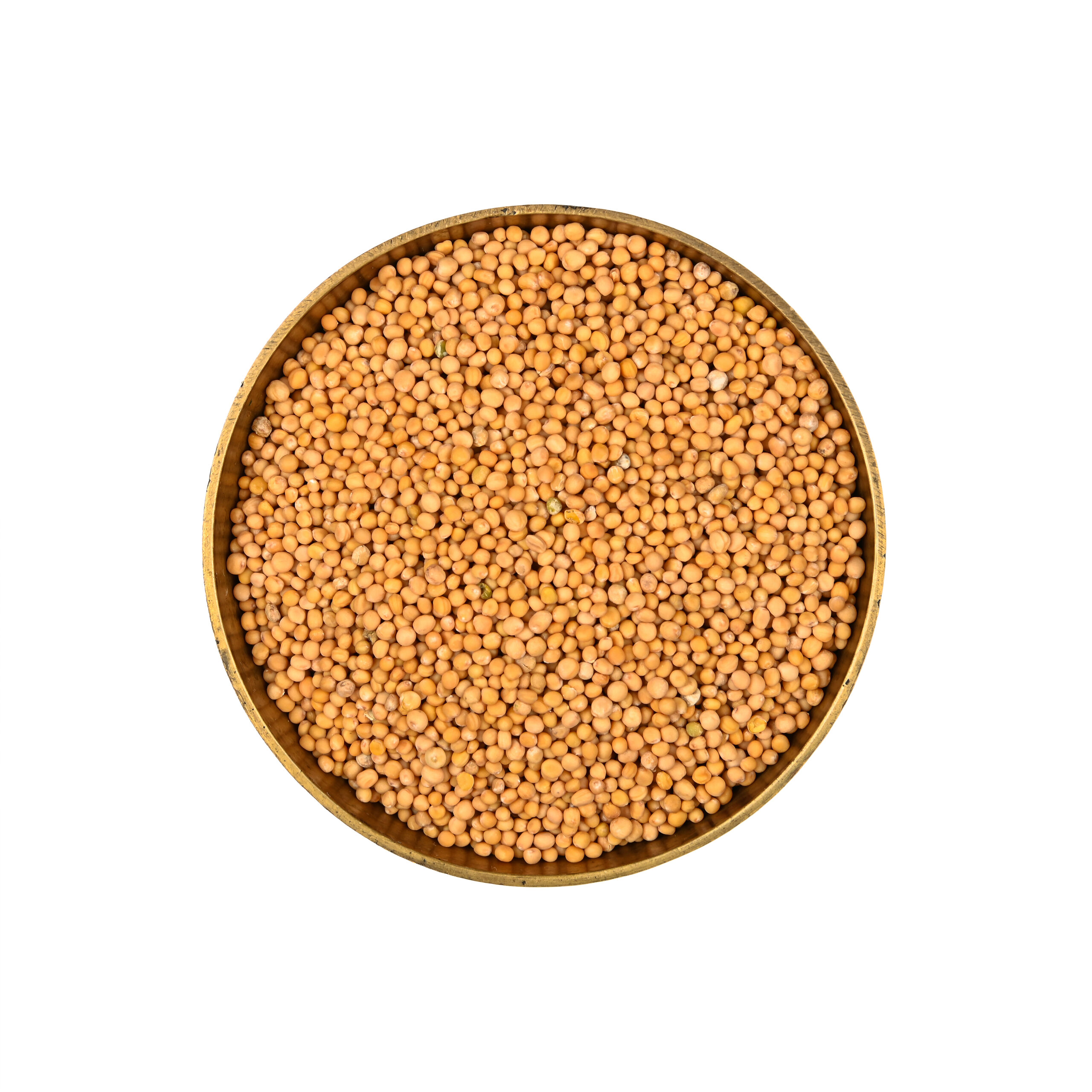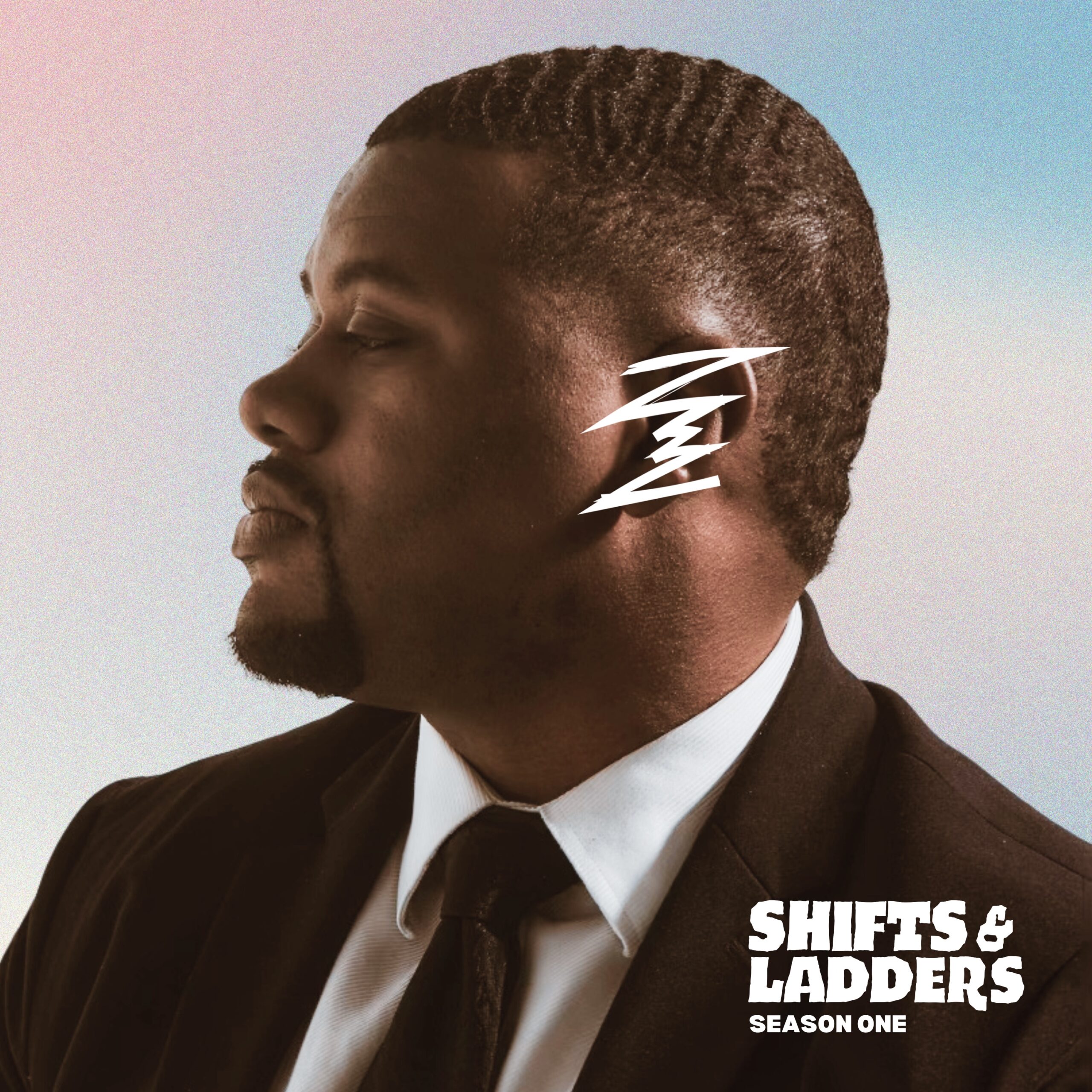Episode Transcript
[00:00:00] Everyone says that they want a better life, that they want better health, that they want their family to be well. They say that they want all of these things. You even say that you want all these things. But really, when you look at what you're doing, does that really match up with what you're saying in this podcast? We're going to get into it.
[00:00:24] But hey everyone, this is Ryan Robinson with life refreshed, excited and delighted for you to be here with me today.
[00:00:52] Many of us say we want health, that we want finances, that we want peace, that we want to be able to have freedom. But honestly, are the things that you are saying matching up with the things that you are doing? I find often that there are some things that many of us want but aren't willing to do. And believe it or not, there are scriptures in the Bible that talk about what it means to one say something and not do what you say you're going to do, but also what those items produce in the back end of it. So if you haven't yet like this podcast, share it with someone. I really believe that this is going to bless you. I'm going to just jump right into it. And I mentioned this in some points, but if you haven't, the book of Proverbs in the Bible, I believe is at this point the derivative of every book you have read.
[00:02:03] There are some books that are timeless, like thinking grow rich and all those kinds of things. But if you want to thinking grow rich, it might be good for you to read the book of the wealthiest individual to have ever lived. And that individual is recorded in the Bible. His name is King Solomon. King Solomon. So if you want to produce again, I'm not going to say you're going to be know Elon or all these other individuals. But if you do want to produce wealth in your life and do want to produce fruit, health, wealth, all the things that the Bible talks about, it's really important to put those things in perspective. And I would prefer that you go to the wisest man who ever lived for that information. So I have a Bible, but I'm using an iPad here and I want you to go. If you haven't, you can google this. It is proverbs. And the book of Proverbs is literally the book of all things, of wisdom. And the first thing I'm going to talk about here is the drunkard, sorry, the ant. And there are several opportunities and really illustrations in here that talk about behavior. It's observed behavior that Solomon was able to glean from in creation. Now, back in those days, Solomon did not have the Internet, he did not have cameras. He did not have all of these things. Yet he was able to glean wisdom from something as simple as an ant.
[00:03:56] As an ant, y'all. So I'm going to read this, and this is going to be one of our first steps. Then we're going to start getting into the next few. So first, this is proverbs, chapter six, verse six. And it says this, go to the aunt, you sluggered. Sluggered. I love that word. Consider her ways and be wise without having any chief officer or ruler. She prepares her bread in summer and gathers her food in harvest. How long will you lie there, o sluggards? When will you arise from your sleep? A little sleep, a little slumber, a little folding of the hands to rest, and poverty will come upon you like a robber and want like an armed man.
[00:04:49] Okay, so the first thing here is the ways of an ant are consistent. There's consistency with an ant. If you have ever watched ants or tried to burn them, if you're one of those kids growing up, they don't stop. They're always on some kind of mission.
[00:05:17] There is an objective, there's consistency in what they're trying to do, and you don't see them doing what they need to do.
[00:05:26] In the wintertime. It's cold. It gets cold in Ohio. And the last time I've seen ants in the wintertime was never, I've never seen it in my experiences. But I do see them in the springtime when things are starting to come up from out the ground. Why? Because now what they saved up and what they built up over time is now the season to replenish it. But that's every year. You get services every year to take care of lawn and spray for pests and all those kinds of things. There's some level of consistency. And on top of that, they want to survive. They want to not just survive, but they want to thrive.
[00:06:20] So my question for you is this. If you say that you want financial stability, if you want health in your body, if you say that you want to have a great relationship with your significant other and with your family, are you doing things on a consistent basis, hear me out. That say you want to do and have those things.
[00:06:48] Now, if you say you want to be healthy and you're not doing the things that require being healthy, I don't think you're serious about it. If you're not getting up in the morning and working out, if you're not changing your diet and you're not going to McDonald's or going to. Well, I guess McDonald's is not the best. That's the worst. Wendy's. We'll go to Wendy's. The quality is great. If you're doing Wendy's and having candy in between or having soda in between times, you are not necessarily fully committed into what you say you want to do if you want to be financially stable. Are you looking at your subscriptions? Are you literally looking at those and not just having them on auto renew?
[00:07:45] Are you literally taking time to see what's going out?
[00:07:50] And is what is going out adding value to you, or are you just consuming it?
[00:07:57] Listen, I love reading books, audiobooks, all those kinds of things. I spend a lot of money there because I want to get information. I need information so that I do not get stuck with the same version of me in two months that I start off the year with. I need more information. I need more revelation. This is a key thing here, and I want you to kind of anchor your thoughts on this. You can only go as far as the revelation that you have. I'm going to say it again. You can only go as far as the revelation that you have, okay? And the only way that you can obtain that is to, one, get knowledge and then get the wisdom to apply the knowledge in the right way.
[00:08:48] Okay. I'll give you a perfect example of this, and this is a personal thing. I'm giving you a little bit of my life here. Like, I haven't done it already, but here we go.
[00:08:57] I went to Dr. Mike Diamonds. He is a YouTuber. I had an interview with him at some point, we'll link it in the show notes or in the pod. And I met with him through one of his videos. And one of the things that we worked through as he was coaching me through this process is that he said, ryan, he said, what's your background? I said, hey, I played football in college and everything. He said, okay, it's great. He said, looks like your physique and everything knows how to respond to strenuous work, and it's probably well developed. I said, yeah, I feel pretty good about that. He said, well, what kind of workouts are you doing now? I said, well, I'm still lifting heavy and I'm squatting and all that kind of stuff. He said, you know, ryan, he said, let me remind you, man. He said, how long ago did you play football? I said, 15 years ago.
[00:09:53] And he said, you don't play football anymore, man. He said, the workouts that you're doing are designed for performance.
[00:10:04] Therefore they're designed to put more strain on your body. Because when you're in the level of competition, your body is going to go through similar levels of stress. So if you're able to expand or understand or endure the amount of stress you put on your body, it actually makes you a better competitor. But you're not doing that anymore. You're not throwing 600 pounds on squats, 400 on the bench press. You're not doing any of that kind of stuff. You have kids, so we need you to be healthy. And you're just trying to be one.
[00:10:40] Healthy for your kids, making sure your joints are healthy, but also making sure that you are aesthetically sound so that you have balance in your body. That information, for me, y'all was a game changer. I'm sitting here thinking, I got to have 700 pounds of weights in my house. I need to be bent, pressing a certain amount of weight, and there's nothing wrong with it. I have no qualms with anyone that does that kind or has that kind of regimen by any means. But the thing is, that kind of information was so important to me because I thought my body could only respond to certain amounts of stress. And now I'm getting benefits from it that I hadn't got with myself exerting more strength or more energy. So in many cases, to summarize it, he's actually helped me work smarter and not harder. Okay? And doing so requires a level of consistency.
[00:11:50] Consistency. So that's the first thing that we've gotten here about growth and the consistency. We already talked about consistency. The next piece of this that we really have to nail down is understanding that all work leads to some kind of profit. Okay? Now, there's folks who work hard, and I love working hard myself.
[00:12:19] And every step that you make towards becoming the person that you have set out to become, any work towards that is work, no matter how small it is. Okay. There is a book, it is considered probably one of the great business books of probably the last, I would say, within the last seven to eight years. Atomic habits by James Clear. And the premise of that book is saying that to create any sustainable process over a long time requires taking small, incremental steps towards that goal. So, for example, I'm not just going to say, I want to lose 27 pounds. It's a random number. 30 pounds. Let's make it 30. I want to lose 30 pounds. Right? So what you want to do, instead of just saying, I want to lose 30 pounds, with some huge number in the future, it could be quite overwhelming. How can I break that down into smaller goals done consistently over time, compounding the results to reach or even exceed that 30 pound goal. Consider it like investing the compound effect. I believe it was Albert Einstein that said compounding is the 8th wonder of the world, or 9th wonder of the world, one of those two.
[00:13:56] And because of that, it is incrementally built over time. So if you wanted to lose weight, your goal should probably to be, I want to lose one pound of fat a week and gain one pound of muscle a week. Now, if you do that compounding over a period of time, there's going to be times where your body is going to respond, et cetera, et cetera. I don't know the science, but you get my drift. It is something that is done over a period of time. Therefore, work leads to profit.
[00:14:31] You do something, it will do something for you in return. Okay, so I'm going to go to proverbs chapter 14, and we're going to 14 and verse 23 and 24. In all toil there is profit. But mere talk tends only to poverty. The crown of the wise is their wealth, but the folly of fools brings folly. Okay? Now, again, it is exactly what it says is plain and simple. Whatever you are working towards, whatever amount of work goes to it, it's going to build and it's going to be profitable for you. Okay? That's why Bible says, do not despise the day of small beginnings. It takes small incremental steps to obtain those kinds of goals, right? And most of the time between being consistent and working towards those goals, no matter how small they are, it creates this ability and actually lack of results in a person's life. And here's the kicker.
[00:15:49] How bad are you willing? This is number three. This is a bonus one.
[00:15:55] How bad or how much are you willing to sacrifice what you currently have for something that you are willing and wanting in the future?
[00:16:09] Okay, I'm going to say that again. How much are you willing to sacrifice what you have now to get and gain what you want in the future?
[00:16:23] The point of consistency, talking about the ant preparing for not just the summer, but in the harvest, those were things that that ant was willing to do now for an expectation in the future.
[00:16:39] They don't know if it's going to be a rough winter or going to be a hot winter or a hot summer. They don't know what to expect. Why? It doesn't really matter because they are doing what they need to do in order to prepare for what they need to prepare for. And as Solomon said, oh, slugger, look at the ant and see what it does, how consistent, how it plans for something in the future, and then how all work, no matter how much it is, leads to profit.
[00:17:21] But mere talk leads to poverty. And I'm not saying poverty of pockets. It's poverty in the sense of there's lack, there's no results. There's no results in just talking.
[00:17:35] Okay, now here's the last piece. John 316 says this, for God so loved the world that he gave his only begotten son, that whosoever believes in him shall not perish but have everlasting life. This is a key scripture for those who are in the body of Christ when it comes to salvation. Now, this is the thing. There is a sense of if you love it, you will sacrifice something for it. We're made in the image and likeness of God. Therefore, there is something that we are not God, but we share his nature. So if you don't have a reason that compels you more to obtain the things that you said you want to get out of this, you're just lying to yourself.
[00:18:29] Yeah. If you don't really believe or you want it bad enough or have a reason, you're just lying to yourself. And your actions, as the Bible says, do not bring profit. Because when you're just talking, there's no results, there's poverty, there's lack. This is a tough lesson for many of us, because the Bible says, if you don't do, there won't be. If you don't do something, there will not be results.
[00:19:01] And you'll be wondering why you didn't experience the things in the life that someone else has. It's because you didn't do the work and you didn't find something that you are willing to sacrifice the current state of you for to obtain the thing that you want in the future.
[00:19:21] I will leave with this. There was a story about a man who went to a doctor, and the doctor was saying, hey, you got high blood pressure. You have pre diabetes.
[00:19:36] What are you doing? You're not taking care of yourself. And he's like, I just don't know what to do. My family's always had this.
[00:19:45] Struggled with blood pressure and blood sugar and everything. So I just feel like this is going to be the thing I'm going to do. This is going to be my pit in life.
[00:19:55] And the doctor said, do you have any kids?
[00:19:59] He said, yeah, I do.
[00:20:03] I have a three year old son.
[00:20:07] And he said, what are they going to do if their daddy is not around?
[00:20:15] And the guy paused for a minute.
[00:20:19] He never really put into perspective of what would happen if he wasn't around.
[00:20:27] And the doctor said to him, you may not have been an athlete or anything like that, but you are a father.
[00:20:37] And if anything, you want to be around for that little boy because he's going to need you at some point.
[00:20:46] So the man with this new revelation of information started to work out, started to change his diet and dramatically changed his composition, who he was and what he enjoyed. It wasn't just for the fact that he was working out.
[00:21:07] It was for the fact that he had and cared for that family, his son, his wife, on the other side of the workout, for the version of him that really would be the best version for them in the future.
[00:21:28] Ladies and gentlemen, you don't know what you're going to be expecting and what you're going to run into, but the visions and the goals that you have. Stop lying to yourself. Give yourself the evidence that you need to believe that you can do it.
[00:21:46] It's important for you to be and become the person that people need. Because believe it or not, you are here for a reason. If you weren't, you'd be dead tomorrow. You have the gift of life.
[00:22:00] So take that gift, steward it well, it check out some proverbs.
[00:22:08] They won't lead you wrong and be who you have believed you can be. We'll catch you in the next pod. Peace.





